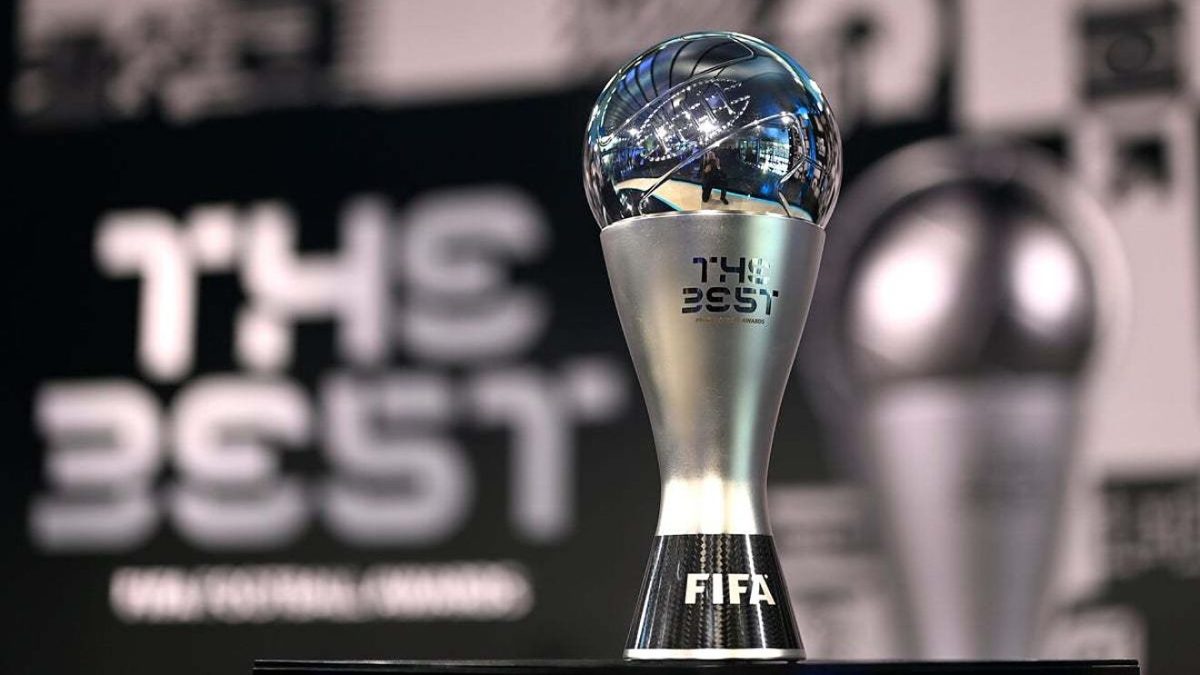In a hypothetical scenario, you are asked to assess a soccer player’s success over a calendar year and award them a trophy labeled “The Best.” Which of these three finalists would you choose?
Player One: European Golden Boot (36 goals); Champions League, Premier League and FA Cup treble winner (53 goals and nine assists all season); Premier League Player of the Year 22-23; Champions League top scorer (12 goals).
Player Two: Ligue 1 champion (16 goals and 16 assists… and 21 goals and 20 assists in the season overall); and League Cup with Inter Miami, where he was MVP and the tournament’s top scorer.
Player Three: Ligue 1 champion and top scorer (29 goals).
(As reported by Marca.)
If you chose player one, you might be surprised that it was player two, labeled “The Best” by the International Federation of Association Football (FIFA), in a ceremony last Monday, Jan. 15.
The winner, Lionel Messi, beat out fellow nominees Kylian Mbappe (Player Three) and Erling Haaland (Player One), the latter of which outscored Messi by 32 goals and completed a European Treble (League and Domestic and European Cup Champions) with his club, Manchester City. This accomplishment has yet to be seen since the 2014-15 season.
Fan outcry against Messi’s victory spread quickly on social media after it was announced he had won it.
“Haaland not winning a single award after winning all this has to be one the biggest robberies in football history,” tweeted user @kijanayaa on Twitter after Messi’s victory was revealed.
To better understand why fans are upset, we must analyze the selection and voting criteria for The Best FIFA awards.
“The winners of The Best FIFA Women’s Player, The Best FIFA Men’s Player, The Best FIFA Women’s Coach, The Best FIFA Men’s Coach, The Best FIFA Women’s Goalkeeper and The Best FIFA Men’s Goalkeeper awards are selected by an international jury comprising the current coaches of all women’s/men’s national teams (one per team), the current captains of all women’s/men’s national teams (one per team), one specialist journalist from each territory represented by a national team and fans from all over the world registered on FIFA.com.”
“The three players, three coaches, and three goalkeepers nominated by each jury member will receive five points, three points, or one point, respectively, depending on whether the jury
member places the player, coach, or goalkeeper… The award is bestowed upon the player, coach, or goalkeeper in each particular award category who received the most scoring points,” said FIFA in an article on its website outlining the voting process.
After the score was added, Messi and Haaland finished with 48 points, with Haaland taking the coaches’ and media points as Messi secured the votes of fans and the men’s national team captains.
Ultimately, the national team captains secured victory for Messi, who won on a tiebreaker due to him receiving more five-point votes from said captains.
“The year is 2048, 60-year-old Messi has won the FIFA Best and Ballon d’Or for the World Cup he won in 2022,” tweeted popular user @TrollFootball immediately following FIFA’s announcement.
This tweet poking fun at Messi’s recent victories echoes a growing sentiment in the soccer world that the once prestigious awards recognizing great players are becoming popularity contests.
While Messi won the Ballon d’Or last year (an Award Given to the best player in a season by French media outlet L’Equipe), claiming victory over the same opponent Haaland, his recent victory of “The Best” award feels like a slap in the face to many.
While plenty of fans believed Haaland should have won the Ballon d’Or, the loss was more accessible to forgive given that Messi’s historic campaign in which he scored seven goals, won the Golden Boot and achieved victory in the tournament was being taken into account.
Fans and Pundits were quick to point out that games that a player plays from Dec. 19, 2022 to Aug. 20, 2023 explicitly omit Messi’s World Cup performance.
“If awards like this want to have credibility amongst players, they need to stop this… The prizes will end up being worthless,” said Norwegian former player and pundit Jan Aage Fjørtoft in a tweet responding to the announcement of Messi’s victory.
These comments question whether fans should maintain the same amount of respect for these types of awards in the future.
Following his victory, Messi would remain silent in the public eye. Eventually, he would break radio silence in a post captioned “vamos,” or “let’s go” in English, a seemingly cheeky reference to recent events despite not acknowledging the award in his photos.






































































































































































































